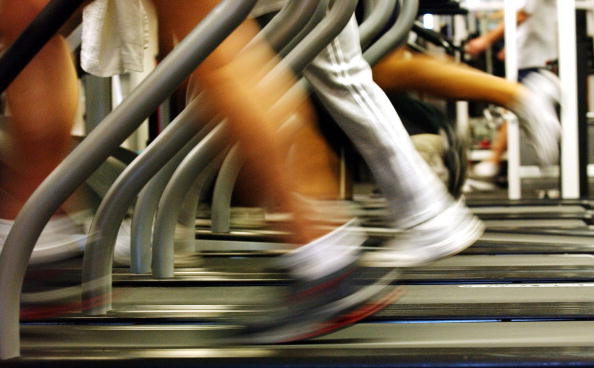Running a little bit every day improves sperm quality - and men's chances of becoming fathers
Moderate activity on a regular basis means men are more likely to have better sperm.

Six months of regular physical exercise may improve men's sperm quality, scientists have said. Taking up sport could be an easy and practical way to boost couples' fertility when they decide to have a baby.
In the UK, 3.5 million couples –about one in six – struggle to conceive. Sometimes, no clear reason can be found to explain why. It is thought that lifestyle and general health can play a role – smoking, having unhealthy diets and being sedentary have been associated with a range of fertility problems.
Beyond infertility, poor sperm quality may increase the probability of couples suffering miscarriages or having children with birth defects.
Although the direct link between exercise and sperm quality had not been definitely proven, men are often advised to combine healthy eating with regular exercise to limit the risks.
In a study published in the journal Reproduction, scientists from the Urmia University in Iran have investigated the impact that physical exercise – both the amount of time spent exercising and the intensity of the workout – has on sperm quality.
Moderate activity is the best
261 healthy men aged between 25 and 40 years old took part in the research – the condition for them to participate was that they did no more than 25 minutes of exercise three times a week. The scientists separated them in four groups to conduct different physical exercise sessions for 24 weeks.
The first one ran on a treadmill for half an hour three to four days a week, the second did the same but for an hour. The third group was instructed to do an exercise which consisted on short one-minute bursts of sprinting on a treadmill, followed by a one minute recovery period, repeating between 10-15 times. The last group was a control group that did no exercise.
Semen samples were taken before and after the exercise sessions to assess different features of the men's sperm: semen volume, sperm count, morphology, motility, levels of inflammatory markers and response to oxidative stress. All these characteristics of sperm can influence a man's chances of becoming a father.

The results clearly highlighted the benefits of exercise and surprisingly, positive effects were more significant for the first group that did only moderate exercise – sessions of half an hour on a treadmill. Compared to the control group, they had 8.3% more semen volume, 12.4% higher sperm motility, 14.1% more concentrated sperm and 21.8% more sperm cells on average.
Behzad Hajizadeh Maleki, lead author of the study commented: "Our results show that doing exercise can be a simple, cheap and effective strategy for improving sperm quality in sedentary men".
However, he acknowledged that sperm quality wasn't the only factor to take into account when evaluating a couple's infertility problems. Analysing male factor infertility is often much more complex than just knowing about the sperm count.
"The reason some men can't have children isn't just based on their sperm count. Male infertility problems can be complex and changing lifestyles might not solve these cases easily", Maleki concluded.
© Copyright IBTimes 2025. All rights reserved.






















